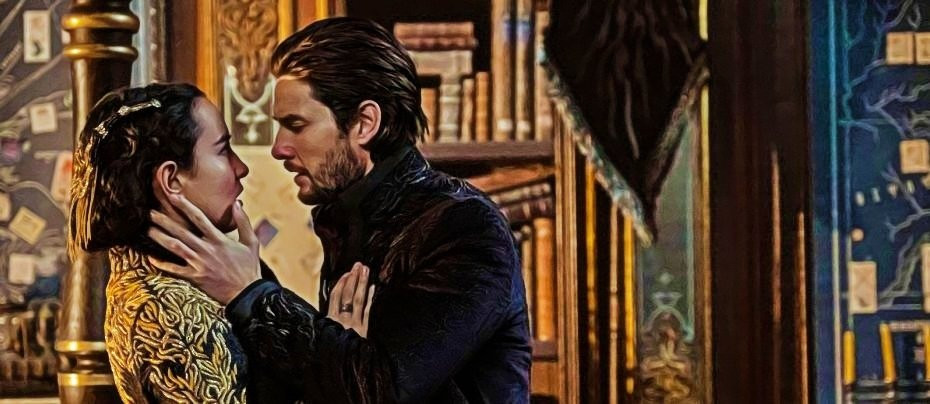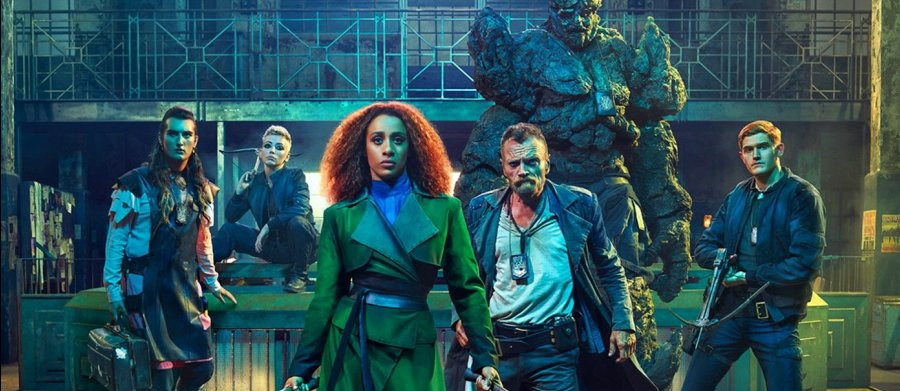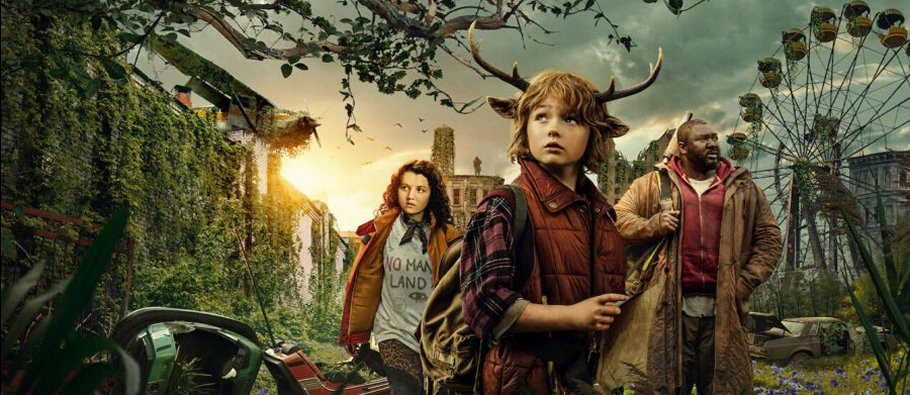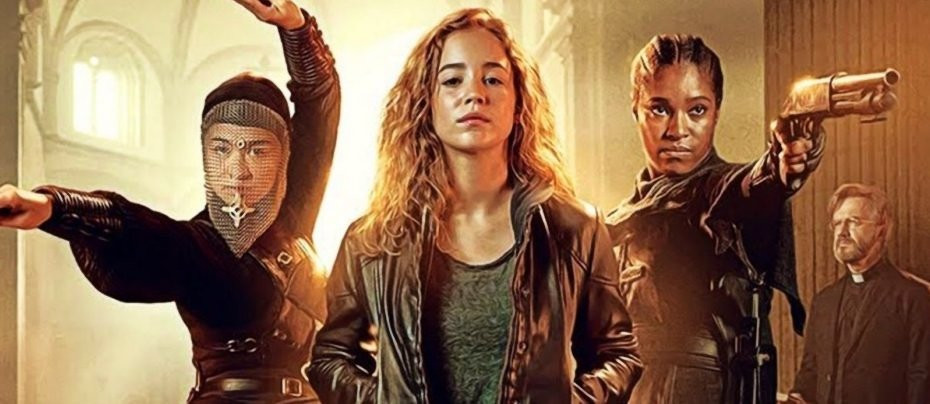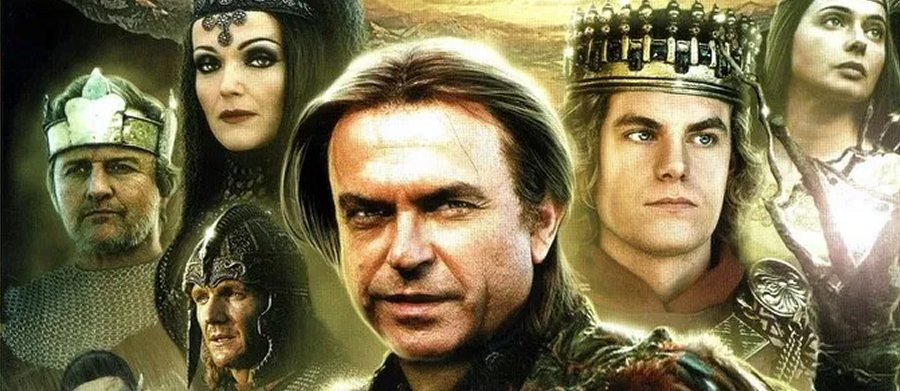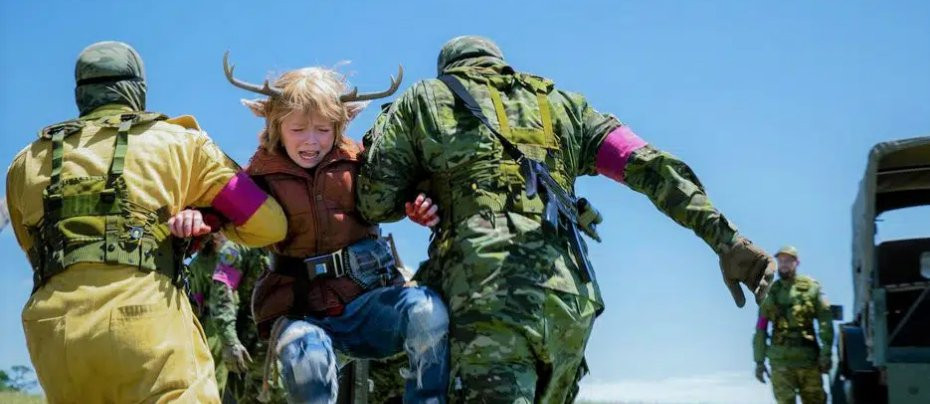
Sweet Tooth - Season 2
This is all very grim - almost Brothers Grimm - far tougher and more realistic than most recent children's drama
Sweet Tooth Season Two review by John Winterson Richards
The plot is curiously similar to that of the recent video game adaptation The Last of Us: a hard, brutal man in a hard, brutal Post-Apocalyptic world becomes the reluctant guardian of a special child who may be the key to curing a disease that has brought humanity to the brink of extinction. Like The Last of Us the show poses a difficult moral question: is one individual whom one happens to love more important than the fate of the human race?
While The Last of Us is the more prestigious and expensive production, Sweet Tooth was there two years ahead of it and is arguably the more powerful story because one invests more in its warm hearted characters than one can in the more nihilistic world of The Last of Us.
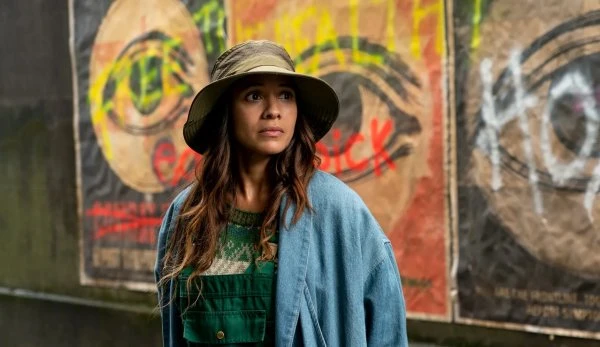
Season Two begins by building on that strength as we begin to find out more about the animal-child "hybrids" rescued and formed into a family by therapist Aimee Eden but who have now been imprisoned in the former zoo that was their home by the wicked "General" Abbot. His thugs' casual vandalism of what was once a secure and loving environment, a literal Garden of Eden, strikes a deliberately jarring note. It feels like a violation.
Until this point Aimee's hybrids have been little more than a plot device. Now we are properly introduced to them as individuals. There is something of a range in their credibility, to put it mildly. Some look like extras in cheaply produced "am dram" while others are wearing fairly advanced prosthetics and the scene stealing groundhog Bobby is an animatronic puppet. Yet it is greatly to the credit of a delightful bunch of child actors that we soon become invested in them as, well, human beings. As the season progresses we get to know more about their different characters and most demonstrate some special ability which is used for the common good.
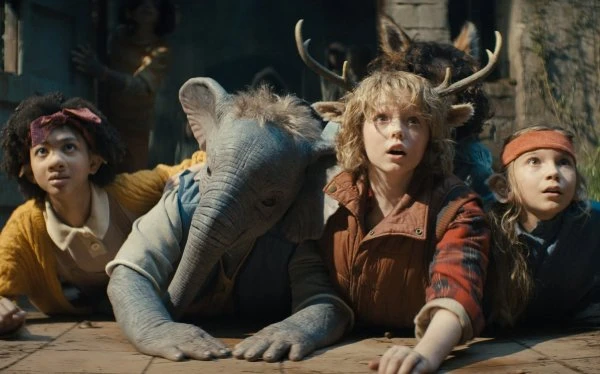
It is all so wholesome that there are times when Sweet Tooth seems more like a children's show, which is how many have categorised it. The writers themselves sometimes seem a bit uncertain of the tone. Yet in the very first episode of the season, just as we are settling in comfortably into what seems like a pleasant family drama, a poignant shot reminds us of a horrifying vivisection towards the end of the previous season. We learn that the child victim had a name, Roy, and that he was a chameleon hybrid, and we see his few personal possessions. An even more horrifying moment soon follows.
They did it. They actually killed the kid. It is one of the unwritten rules of scriptwriting that you never kill the cute child or the cute animal because it puts the viewers off, but Sweet Tooth effectively does both in one with Roy. Nor is he the only talking hybrid with a name to die horribly, and the casual way the deaths are revealed, especially to the other children, adds another level to the horror. Sympathetic adult characters, including a very important one, also die unpleasantly in the course of the season.

The fact that the show has already established the child's point of view in all its innocence makes these moments all the more shocking. The dramatic impact of the nastiness is actually greater than in a supposedly more "adult" show like The Last of Us where we are prepared for it because Sweet Tooth gives us a razor sharp contrast between the children's expectations and the harsh reality of the world in which they live.
It was something of an irritation that in the first season the supposedly responsible adults tried too hard to shield the children from these realities, but this sets up what one assumes is a clever pay off in this season. Gus, our loveable deer-boy hybrid protagonist, copying how the adults in his life acted towards him, tries to hide the full horror of their situation from the other children. Almost inevitably the truth comes out and the mutual trust among the children is broken at a time when it is essential for their survival that they work together.
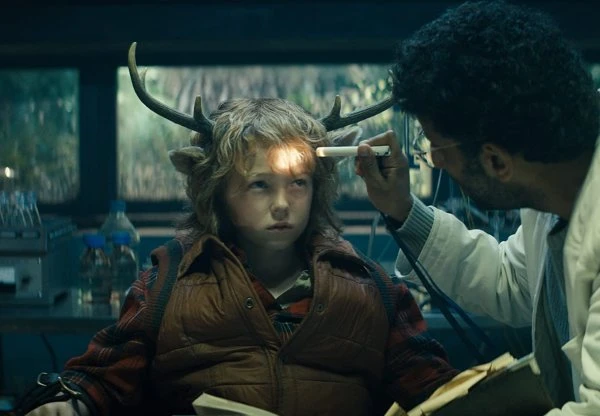
This is all very grim - almost Brothers Grimm - far tougher and more realistic than most recent children's drama, but, like the traditional tales collected by the Grimms, Sweet Tooth performs the basic function that children's stories exist to serve: they prepare children for the dangers of adulthood while they are still in a safe environment. Where most television has abdicated this duty in recent years, Sweet Tooth is not afraid to be cruel to be kind.
Yet, at the same time, Sweet Tooth still downplays the dangers and difficulties, and probably the squalor, of living in the world after an Apocalyptic event like "The Great Crumble." Finding food is never shown as a major issue. In reality, bison would not be happily reclaiming the land: they would more likely have been hunted to extinction in the immediate aftermath of "The Great Crumble." Agriculture, water supply, energy, and fuel are mentioned as concerns, but electricity is shown as working, wheeled transport is being used a lot, and helicopters and large aeroplanes fly around even when not really necessary.
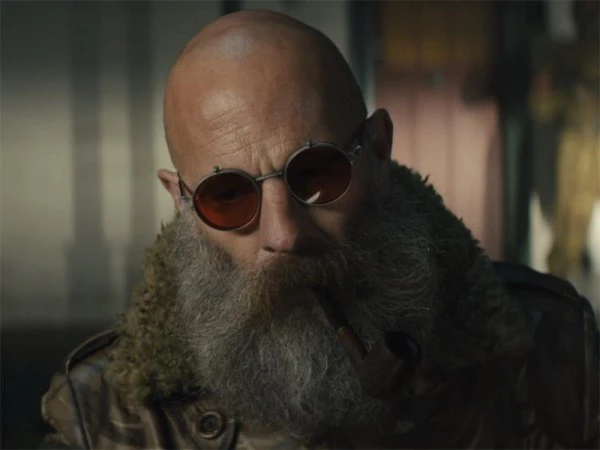
The warlords who are shown establishing such order as there is are just as unrealistic. There would undoubtedly be such people but they would have to be practical leaders capable of persuading others to follow them on the basis of their personal ability alone without legal authority to back them up. One cannot understand why anyone would trust someone like Abbot to lead them. Neil Sandilands invests the character with magnetic presence, and is particularly good in the scenes that tell us something of his family background and life before "The Great Crumble," but Abbot is too much of a pantomime villain to be taken seriously.
There is a not very subtle political subtext to this aspect of the script which will probably not age well. Abbot's mostly white and stereotypically unpleasant "Last Men" are nostalgic for the past before "The Great Crumble" (who would not be in those circumstances?), while their opponents, the "Animal Army" are shown as young "activists" without visible means of support. However, the notion of the Animal Army as a force capable of taking on the Last Men becomes increasingly ludicrous and even the script is eventually forced to acknowledge the reality of that particular contest.
There are also a huge number of holes and conveniences in the plot, and it is very much a product of its time: the production of a vaccine against the killer disease is a major thread, but a new "Doomsday" strain is evolving, clearly influenced by the "Omicron" strain of the coronavirus that was being touted as a big threat around the time Season Two was being made but which is already all but forgotten about a year later.

All that having been said, the story and characters are still very engaging. That there are meaningful stakes on the table strengthens every emotion. The early episodes, set mainly in the zoo, are tense as we wonder if the children will escape or be rescued before another goes to the vivisection table. Which will It be? There is real joy when most of the "family" is finally united and almost everyone we care about is on their way together to what has been presented as an idyllic place of safety. There are some much needed moments of light relief, usually involving Bobby, who is given a couple of witty film references.
Christian Convery continues to charm as Gus, but the season really belongs to Naledi Murray as Wendy, the porcine hybrid who has to lead Aimee's children in her absence. She provides a quietly impressive study of a child being forced to assume responsibilities with which most adults could not cope and gradually becoming more confident in her leadership role. Wendy is the perfect antidote to the current fashion for obnoxious "girl bosses" who start off acting as if they know it all and never develop as characters. She is both more admirable and more believable because of her weakness as child. Christopher Sean Cooper deserves a mention as the shy Teddy Turtle who turns out to have a lot more to him than might at first appear.

The increased emphasis on the children means there is less on the adult principals, Aimee (Dania Ramirez), "Big Man" Jepperd (Nonso Anozie), and Bear (Stefania LaVie Owen), but they all have their moments and the performances are all of a very high calibre. Adeel Akhtar does well with the difficult role of a reluctant Mengele, keeping us unsure for longer than we should be whether we are supposed to feel a smidgen of sympathy for a man who performs such indefensible acts for reasons that may be at least understandable. Aliza Vellani manages to find some redeeming features in the character of his wife, who was even more indefensible than her husband in the first season because her motives were entirely selfish.
Events are set up for a third season, which has apparently been filmed already, so that the emphasis is likely to return to the adults and Gus. Most of the children may have been sidelined because child actors tend to grow faster than their characters in the timeline of a season. As with Stranger Things, there may be a natural limit to how long a show like this can last - even Gus will be less appealing as a teenager. The announcement, while this overview was being written, that the third season will be the last therefore comes as no surprise and it may be a wise decision. Good shows do well to quit while they are ahead and Season Two puts Sweet Tooth in perfect position to do just that. If it can maintain the balance between amiability and edginess as expertly as it has done so far, and if it does not make the mistake of trying to subvert expectations by depriving fans of the happy ending they deserve after all the depressing bits, it has the potential to go down as a minor classic.
Published on May 20th, 2023. Written by John Winterson Richards for Television Heaven.


